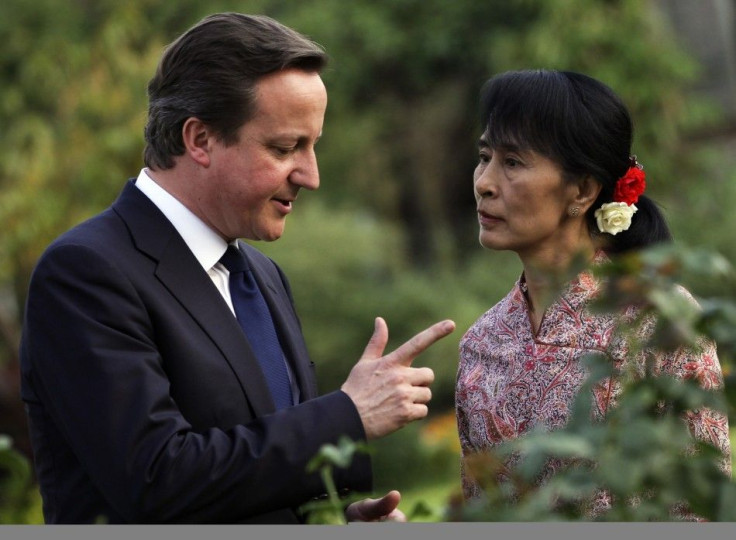Burma Opposition Leader Aung San Suu Kyi To Visit Europe For First Time In 24 Years

Opposition leader Aung San Suu Kyi of Burma, formally known as Myanmar, plans to visit Europe after having spent the last 24 years in the southeastern Asian country.
Although the exact dates of her European visit are not yet confirmed, according to the Associated Press, her first stop will be Norway, at the invitation of Prime Minister Jens Stoltenberg, followed by a return trip to Oxford, England where she had previously lived with her husband and two children.
In 1988 she had left Oxford to visit her ailing mother in Myanmar where she began to lead an opposition movement against the military regime.
She has not left the country since.
For much of this period -- 15 years -- she was under house arrest. The rest of the time she was determined not to leave Myanmar -- afraid that the ruling authoritarian junta she opposed would not allow her to return.
Indeed, she never left her homeland even to visit her two sons, nor to visit her sick husband back in England who was dying of cancer (he died in 1999), nor did she travel to Oslo to accept her Nobel Peace Prize in 1991.
Instead, Suu Kyi, like her father before her, made these personal sacrifices so she could lead the fight for democracy and lead an opposition movement against the military junta in Myanmar.
Her father, Aung San, had become a national hero after he led the country to independence back in 1948.
Hopes for a democratic Myanmar however, were short lived -- a military coup in 1962 plunged the country into authoritarian rule for almost 50 years until the election of a nominally civilian government led by President Thein Sein last year. The president has enacted a series of reforms that few thought were possible, including the release of hundreds of political prisoners and the relaxation of media censorship.
In addition, Suu Kyi was elected to parliament in by-elections held last month that international observers determined were free and fair.
The recent signs of democratic progress prompted a visit from British Prime Minister David Cameron who met with President Sein last Friday to discuss the possible suspension of British sanctions on Myanmar. The United States and European Union have also said they will ease some sanctions against Myanmar.
The sanctions by the UK have been in place for the past 23 years - Britain's response to the extensive human rights abuses committed by the Myanmar military regime.
During his visit, Cameron met with Suu Kyi as well -- they both agreed that suspending the sanctions was the right course of action. According to Reuters, Cameron commented that despite making some meaningful steps towards democracy, there is much left for Myanmar to do in way of reform.
They haven't done enough, there's much more that they need to do, and we will keep that pressure on. That is why suspending sanctions, rather than lifting sanctions, is the right answer, he said.
It was also during this meeting that Cameron invited Suu Kyi to visit England.
Two years ago I would have said 'thank you for the invitation, but sorry,' she said, when asked whether she would accept Cameron's offer.
Now I'm able to say 'well perhaps', and that's great progress.
© Copyright IBTimes 2024. All rights reserved.











